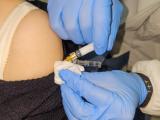Aug 9, 2007 (CIDRAP News) – Indonesian health officials said this week they will continue withholding samples of the H5N1 avian influenza virus at least until a new virus-sharing mechanism is worked out at an international meeting in November.
The statements came in response to criticism earlier this week from a World Health Organization (WHO) official, who said Indonesia was endangering global health by withholding the viruses.
In December, Indonesia stopped sharing its H5N1 samples with the WHO as a protest against the cost of commercial vaccines derived from such samples. The samples are needed for tracking the mutations and spread of the virus and for developing vaccines.
Indonesia said it would resume sharing its H5N1 samples in May when the World Health Assembly passed a resolution asking the WHO to establish an international stockpile of H5N1 vaccines and create an interdisciplinary working group to draw up new "terms of reference" for the sharing of flu viruses by WHO collaborating centers and reference laboratories.
At that juncture the country sent three H5N1 samples to the WHO, which appeared to end its embargo. However, David Heymann, the WHO's assistant director-general for communicable diseases, said at a press conference Aug 6 that the samples contained no live viruses.
"Indonesia is putting the public health security of the whole world at risk because they're not sharing viruses," Heymann said in the press briefing. The briefing dealt with a WHO-sponsored meeting in Singapore last week, where a working group of officials from 23 countries drew up virus-sharing proposals to be considered further at the November meeting.
Triono Soendoro, Indonesia's deputy health minister for research, told the Financial Times yesterday that the samples the country sent the WHO in May were adequate for determining if a viral mutation had occurred.
Indonesia will resume sending samples only when a formal system is established that ensures developing countries receive equitable access to affordable vaccines made from the samples they share, Soendoro told the Times. "If that's not all ready and we send samples, anything could happen. It's a simple request to be transparent, to be accountable," he said.
It wasn't clear if Indonesia would begin sharing viruses again once the working group's plan is completed at the WHO intergovernmental meeting in November or when the final agreement is approved at the World Health Assembly next May, the Times reported.
However, Lily Sulistyowati, an Indonesian health ministry spokesperson, said the country would wait for the new virus-sharing mechanism to be approved at the November meeting before resuming sending virus samples, the Jakarta Post reported today.
"However, anyone who needs the virus can file a special request to us officially," she told the Post. Sulistyowati also said she couldn't understand why the WHO didn't complain earlier about the samples Indonesia sent in May, according to the Post report.
See also:
Aug 7 CIDRAP News article "WHO: Indonesia's withholding of viruses endangers world"
Aug 1 CIDRAP News story "WHO working group grappling with virus-sharing issues"


















